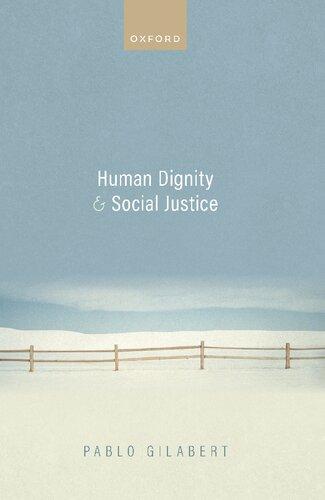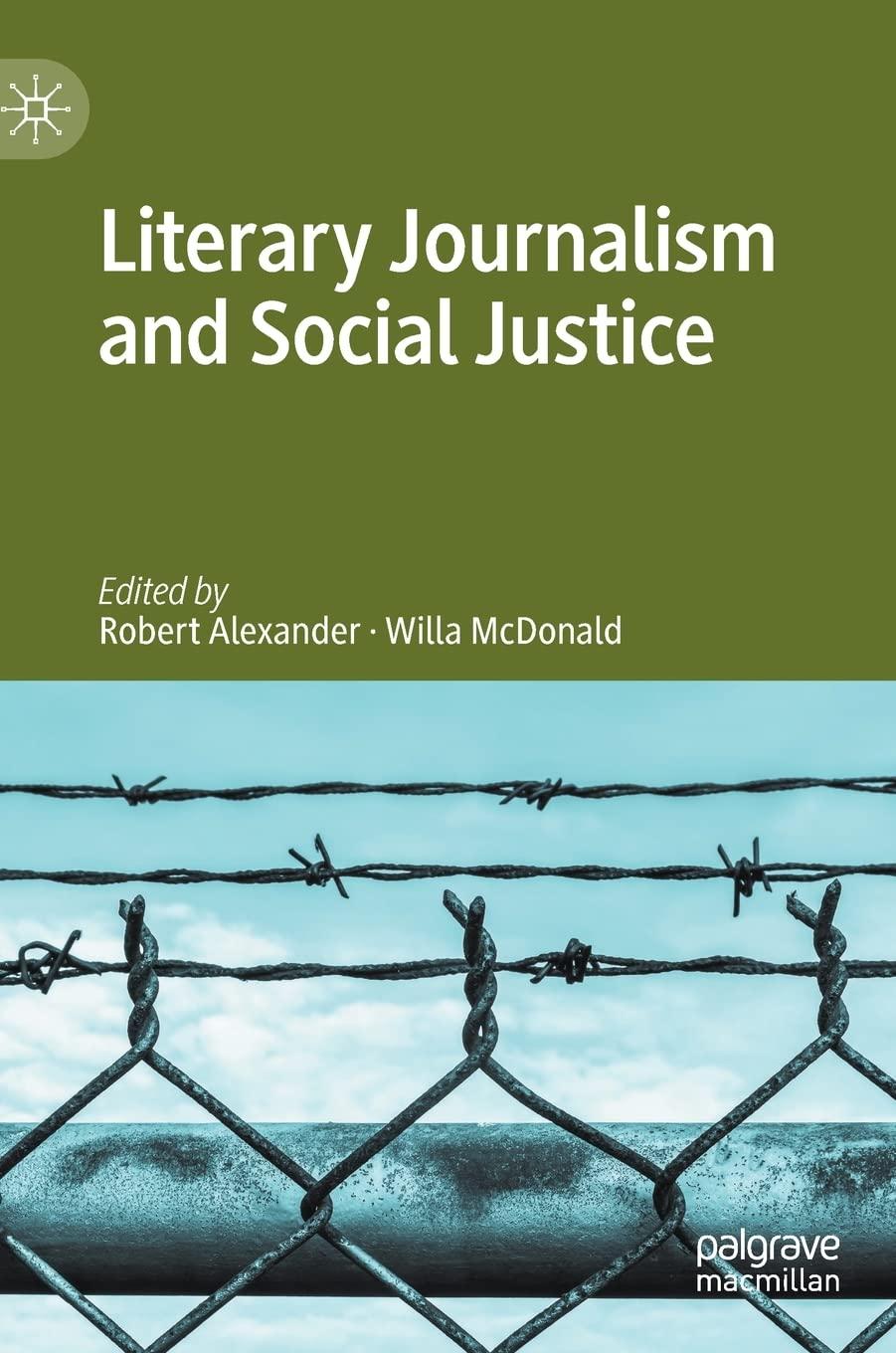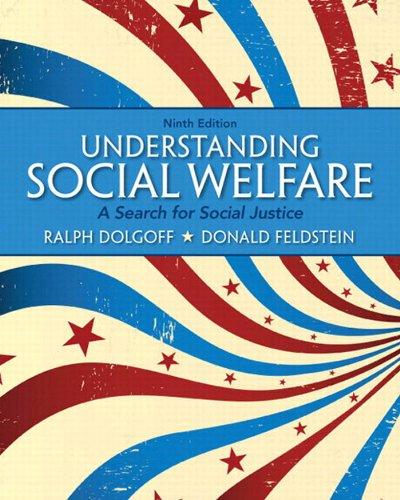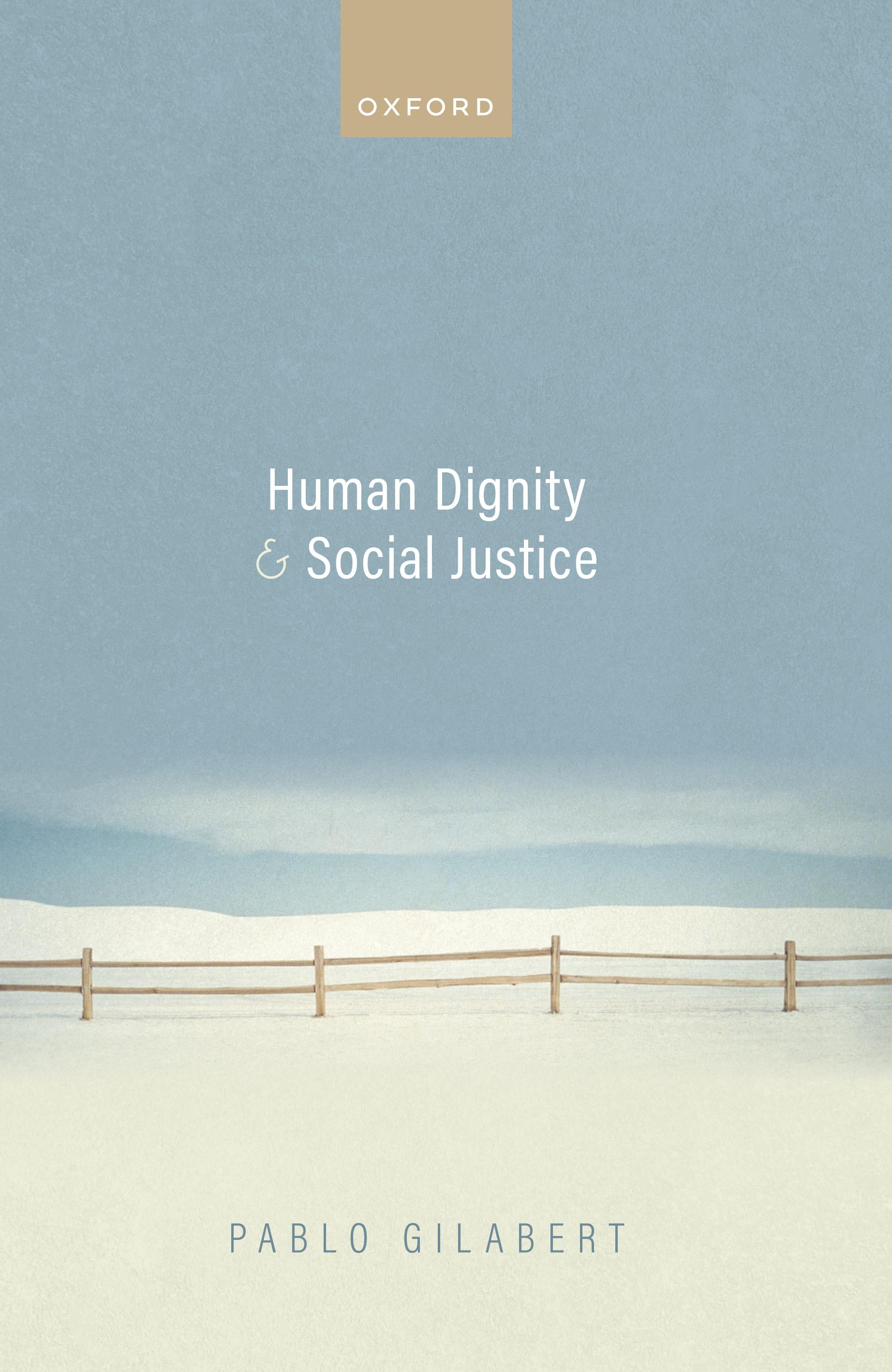HumanDignityand SocialJustice
PabloGilabert
GreatClarendonStreet,Oxford,ox26dp, UnitedKingdom
OxfordUniversityPressisadepartmentoftheUniversityofOxford. ItfurtherstheUniversity’sobjectiveofexcellenceinresearch,scholarship, andeducationbypublishingworldwide.Oxfordisaregisteredtrademarkof OxfordUniversityPressintheUKandincertainothercountries ©PabloGilabert2023
Themoralrightsoftheauthorhavebeenasserted
Impression:1
Allrightsreserved.Nopartofthispublicationmaybereproduced,storedin aretrievalsystem,ortransmitted,inanyformorbyanymeans,withoutthe priorpermissioninwritingofOxfordUniversityPress,orasexpresslypermitted bylaw,bylicenceorundertermsagreedwiththeappropriatereprographics rightsorganization.Enquiriesconcerningreproductionoutsidethescopeofthe aboveshouldbesenttotheRightsDepartment,OxfordUniversityPress,atthe addressabove
Youmustnotcirculatethisworkinanyotherform andyoumustimposethissameconditiononanyacquirer
PublishedintheUnitedStatesofAmericabyOxfordUniversityPress 198MadisonAvenue,NewYork,NY10016,UnitedStatesofAmerica
BritishLibraryCataloguinginPublicationData Dataavailable
LibraryofCongressControlNumber:2022945708
ISBN978–0–19–287115–2
DOI:10.1093/oso/9780192871152.001.0001
PrintedandboundintheUKby ClaysLtd,ElcografS.p.A.
LinkstothirdpartywebsitesareprovidedbyOxfordingoodfaithand forinformationonly.Oxforddisclaimsanyresponsibilityforthematerials containedinanythirdpartywebsitereferencedinthiswork.
Preface
Humandignity:socialmovementsinvokeit,severalnationalconstitutions enshrineit,anditfeaturesprominentlyininternationalhumanrightsdocuments.Butwhatisit,whyisitimportant,andwhatisitsrelationshipto humanrightsandsocialjustice?Myresearchoffersasystematicdefenceof theviewthathumandignityisthemoralheartofjustice.In HumanDignity andHumanRights, 1 Iadvancedanaccountofhumandignityforthecontextofhumanrightsdiscourse,whichcoversthemosturgent,basicclaims ofdignity.Inthisbook,Iextendthedignitarianapproachtomoreambitiousclaimsofmaximaldignityofthekindencodedindemocraticsocialist conceptionsofsocialjustice.Inparticular,thisbookfocusesonthejustorganizationofworkingpractices.Itrecastsinadignitarianformatthecritique ofcapitalistsocietyasinvolvingexploitation,alienation,anddominationof workers,andrevampsaneglectedbutinspiringsocialistprinciple.Inmydignitarianinterpretation,theAbilities/NeedsPrinciple(‘Fromeachaccording totheirability,toeachaccordingtotheirneeds!’)yieldsreasonableandfeasiblerequirementsonsocialcooperationgearedtoempoweringeachhuman beingtoleadaflourishinglife.Whilemypreviousbookofferedthefirstsystematicphilosophicalaccountofhumandignityinhumanrightsdiscourse, thecurrentbookpresentsthefirstsystematicapplicationofthedignitarian frameworktothecoreidealsofdemocraticsocialism.
Overall,thisbookhasthefollowingkeyoriginalanddistinctivefeatures:
(i) Asystematicphilosophicalaccountofthecontentandsignificanceof humandignityasacentralideaforsocialjustice.
(ii) Anewinterpretationofthecritiquesofcapitalismasinvolving exploitation,alienation,anddomination.
(iii) AnovelproposalforhowtounderstandtheAbilities/NeedsPrinciple.
(iv) Adynamicaccountoftherelationbetweenjusticeandfeasibility andanapplicationofittothecomparisonbetweensocialismand capitalism.
1 Gilabert(2019a).
Letmestatethesecontributionsinmoredetail.Thefirstincludesconceptualandsubstantivedimensions.Regardingtheformer,thisbookclarifies thenetworkofconceptsassociatedwithdignity.Iproposedefinitionsofthe conceptsof status-dignity,condition-dignity,thebasisofdignity,dignitarian norms,thecircumstancesofdignity, and dignitarianvirtue.Thesedefinitions tidyuptheoftenratherconfusingdiscourseofdignity.Theyalsohelpmakeit consistent.Take,forexample,thefirstthreenotions.Status-dignityisamoral statusthatpeoplehaveinaccordancewithwhichrespectandconcernare owedtothem.Thespecificformsofconcernandrespectarespecifiedby thedignitariannorms.Finally,condition-dignitymarksstatesofaffairsin whichdignitariannormsarefulfilled.Now,itissometimessaidthatbecause theyhavedignity,peoplemaynotbeenslaved.Itisalsosaidthatwhen theyareenslaved,peoplelackdignity.Somecriticsuseexampleslikethisto chargedignitariantalkofincoherence.Buttheallegedincoherencedissolves ifweusethedistinctionsIpropose.Slaves’status-dignityisindependentof whetheritisrecognizedorhonouredbyanyconventionorpractice.Asa moralstatusitremainsallalong.Itisbecauseofthisthatslavesaremorally entitledtoresistoppression,andslave-ownersarerequiredtogiveitup.What slaveslackiscondition-dignity,thepredicamentinwhichdignitariannorms prohibitingslaveryareimplemented,whichispreciselywhattheworkof socialjusticemustbringabout.
Thisbookalsoexplainshowhumandignitygeneratescoresubstantiveideals.Thus,accordingtothe DignitarianApproach, wehavereasontoorganize sociallifeinsuchawaythatwerespondappropriatelytothevaluablefeatures ofindividualsthatgiverisetotheirdignity.Onthisview,whatweowetoeach otheristreatmentthatenactsrespectandconcernthatfitsourmoralstatus asbeingswithdignity,andthisinturnmeansthatweshouldtakeseriously thevaluablefeaturesthatgiveeachofussuchastatusbythinkingandacting inwaysthatrespondtothesefeaturesinappropriatelyfavourableways.
Toarticulatethenormativerequirementsflowingfromthisapproach,I exploreanidealof SolidaristicEmpowerment,accordingtowhichweshould supportindividualsintheirpursuitofaflourishinglifebyfulfillingboth negativedutiesnottodestroyorblocktheirvaluablecapacitiesandpositivedutiestoprotectandfacilitatetheirdevelopmentandexerciseofthese capacities.Peopleindeedhavevaluablecapacities—forsentience,moraland prudentialreasoning,knowledge,creativity,aestheticappreciation,andso on.Althoughnotallhavethesamesetofvaluablecapacities,theyhavedignity whenevertheyhavesomeofthem.Peopleflourishwhentheyunfoldthese capacities.Torespondappropriatelytotheirdignity,weshouldtreatthem wellbysupportingthisflourishing.Weshouldavoiddestroyingorblocking
people’scapacities,andweshouldtakefeasibleandreasonablestepstohelp themsucceedastheydevelopandexercisethem.Animportantjobofaconceptionofsocialjusticeispreciselytoarticulatethecontentofthenegative andpositivedutiesofsolidaristicempowermentthatwehavetowardseach other,andtoidentifythepracticesandinstitutionsthatcouldimplement them.
Thecentralnotionofstatus-dignitymarksaninherent,non-instrumental, egalitarian,andhigh-prioritymoralstatusofhumanpersons.Peoplehave thisstatusinvirtueoftheirvaluablecapacitiesratherthanasaresultoftheir nationality,race,class,orotherconventionalorlessmorallysignificantfeatures.Basinghumanrightsonstatus-dignityallowsustoexplainanddefend universalisticdemandsforvariouscivil,political,andsocialentitlements. Now,articulatingliberalandsocialistidealswithinadignitarianframework thatalsogroundshumanrightsishelpfulforunderscoringtheuniversalism ofsocialjusticeandtheimportanceofcivilandpoliticallibertieswithinit.We canthusavoidproblematicformsofliberalismthattakeprinciplesofsocial justicetoapplydomesticallybutnotglobally,andcorrectviewsofsocialismthatneglecttheimportanceofguaranteeingpersonalprivacy,freedom ofspeech,andavibrantdemocraticpoliticalprocess.
ThisbookexplainshowtheDignitarianApproachhelpsarticulatethe content,justification,andfeasibleimplementationofcertainspecificand contesteddemandsofsocialjustice.Ifocus,inparticular,onexploringinstitutionsandpracticesof work. Althoughoftenneglectedincontemporary liberalpoliticalphilosophy,theyareofgreatpracticalimportance.Manypeoplespendabouthalfoftheirwakinghoursatwork,andworkingisformost apreconditionforsubsistenceandsocialrespect.Workisalsoapotential mediumofformsofself-determinationandself-realizationthatcannotbe achievedtoasufficientextentinotheractivities.Thesecondandthirdcontributionsofthisbookconsistinproposinganew,dignitarianarticulation ofthecritiqueofcertaininjusticesintheorganizationofworkingpractices andinformulatingapositiveframeworktoidentifyalternativesthatdeliver greaterfulfilmentofwhathumandignitycallsfor.
TheDignitarianApproachcanbedeployednotonlytoarticulateclaims ofbasicjusticesuchashumanlabourrights,butalsomoreambitiousidealsofsocialjusticeregardingwork.Humanrightsincludedemandsofbasic dignity,suchasthatpeoplehaveaccesstoworkingactivities;workonjobs thatarechosenratherthancoercivelyimposed;avoiddiscriminationbased ongender,sexualorientation,orrace;receiveadequateremuneration;andbe entitledtoformunionsandengageinpoliticalactivitiestodefendtheirinterests.Butworkerscanmakejustifiedclaimstomorethanbasicdignity.They
canalsoenvisionmaximaldignity.Thesocialistcritiqueofcapitalismholds thatthedignityofworkersisalsounderappreciatedwhentheyarepushed intopracticesthatinvolve domination,exploitation, and alienation,i.e.when workersareinappropriatelysubjecttothewillofothersintheshapingof thetermsonwhichtheywork,whentheirvulnerabilityisinappropriately takenadvantageofbymorepowerfulemployerstogetthemtogivemore thantheyoughtto,andwhentheirabilitytofashionapositivesenseofthemselvesthroughactivitiesthatfeaturetheexpressionoftalentsandskillsis stuntedratherthanunleashed.Fulljusticeforworkersrequiresrealopportunitiesforproductivepracticesinwhichtheyaccessthehighestlevelsof self-determinationandself-realizationthatarefeasibleandcanbesecured atreasonablecostforall.Toachievethis,socialcooperationshouldbestructuredsothatworkersarenotonlyaskedtogive,butarealsoentitledtoreceive infairways.AsIinterpretit,thesocialistslogan‘Fromeachaccordingto theirabilities,toeachaccordingtotheirneeds!’(theAbilities/NeedsPrinciple) enjoinsschemesoffaircooperationthatempowerworkerstoleadflourishing livesinwhichtheydevelopandexercisethecapacitiesatthebasisoftheirdignity,notonlytosurviveandavoidthemostegregiousabuseswhichhuman rightsdiscoursecondemns.Althoughthisprinciplehasbeenignoredinpoliticalphilosophy,adignitarianinterpretationofitcanilluminateitscontent andstrengthasaguidelineforsolidaristiccooperation.
Insum,thesecondandthirdcontributionsofthisbook’sdevelopmentof theDignitarianApproacharetoprovidesocialistpoliticalphilosophywith sharpfoundationsforitscritiqueofcapitalistdomination,exploitation,and alienation,andappealinggroundsforthepositivevisionofasolidaristic societyencodedintheAbilities/NeedsPrinciple.
Finally,thefourthcontributionofthisbookisthatitoffersanovelaccount oftherelationbetweenjusticeandfeasibilityandanapplicationofittothe comparisonbetweensocialismandcapitalism.Itiscommoninpoliticaltheoryandpracticetochallengenormativelyambitiousproposalsbysayingthat theirfulfilmentisnotfeasible.Buttherehasbeeninsufficientconceptual explorationofwhatfeasibilityis,andnotenoughsubstantiveinquiryinto whyandhowitmattersforthinkingaboutsocialjustice.Thisbookprovides asystematictreatmentoftheseissues,andproposes adynamicapproachto therelationbetweenjusticeandfeasibility thatilluminatestheimportanceof politicalimaginationanddynamicdutiestoexpandagents’powertofulfil ambitiousprinciplesofjustice.Theboldprofileofdignitarianjusticeisthus vindicated,whilethespecificlinkbetweendynamicduties,dynamicpower, anddynamicvirtuearearticulated.Ademocraticratherthanauthoritarian
frameworkforpoliticalchangeisdefendedanddeployedtoilluminatethe comparisonbetweensocialismandcapitalism.
Althoughthechaptersofthisbookarecomposedinsuchawaythatthey canbereadseparately,theyformastructuredwhole,startingwiththetheoreticalframeworkofdignityinsocialjustice(Chapters1–4)andproceeding withitsdeploymenttoilluminatecorethemesinthesocialistcritiqueofcapitalism(Chapters5–8). Chapter1 delineatestheessentialelementsofthe DignitarianApproach. Chapter2 explorestwoimportanthistoricalsources inspiringsomeofitscentralideasandtheirapplicationtosocialjustice. Asarticulated,KantiandignityandMarxiansocialismturnouttobequite appealingandmutuallysupportive. Chapter3 offersanewinterpretationof thepowerful(butneglected)Abilities/NeedsPrinciple,showingthatitcan beseenasafittingarticulationofwhatthedignitarianidealofSolidaristic Empowermentdemandsforeconomiclife. Chapter4 explorestherelation betweenjusticeandfeasibility,proposingadynamicviewofthepursuitof socialjustice(includingsocialism)inwhichtheambitiousrequirementsof adignitarianperspectivecangainpracticaltraction. Chapters5 through 7thenexamineindetailthephenomenaofexploitation,alienation,and domination,deployingtheDignitarianApproachtoexplainwhatismorally problematicaboutthem. Chapter8 concludesbysuggestingfruitfulwaysto thinkaboutthecomparisonbetweensocialismandcapitalism.
ThetwomainobjectivesofthisbookaretoextendtheDignitarian ApproachIfirstdevelopedinthecontextofhumanrightstothemoreambitiousdomainofsocialjusticeandtoprovideafreshexplorationofcentral topicsinsocialistpoliticalphilosophy,suchastheAbilities/NeedsPrincipleandthecritiquesofexploitation,alienation,anddominationofworkers. TheDignitarianApproachissystematicallyarticulatedin Chapter1.Inlater chapters,itisdeployedin mediares,asdiscussionofthesubstantiveissues addressedproceeds.This,Ithink,isthemosteffectivewaytoshowits explanatorypower.Itwillalsoallowmetohighlightthisbook’snewconceptualandnormativepointsaboutimportanttopicsinsocialistpolitical thought.
Iwouldliketomaketwogeneralremarksaboutthenatureandlimitsof thisbook.Thefirstisthatitisaworkofphilosophy.Myfocusisoncoreconceptualandnormativestructures.Iseektooutlinethecontentoftheideaof dignity,theconnectionsbetweenjusticeandfeasibility,thecentralsubstantiveprinciplesoftheDignitarianApproachandofsocialistjustice,andtheir relevanceforunderstandingwhatiswrongwithworkingpracticesthatfeatureexploitation,alienation,anddomination.AlthoughIinevitablyrelyon
empiricalclaimsatvariouspointinmyarguments(anddosobydrawingon theworkofsocialscientists),theyarenotthemainsubjectofmyinquiry. Similarly,althoughImentionpotentialpracticalimplicationsofthemoral ideasIdefend,Idonottrytoofferdetailedpolicyblueprintsorspecificproposalsforpoliticalaction.AsIseeit,philosophycanandshouldworkin cooperationwithsocialscienceandpolicy,butithasitsowndistinctiveroles.
Second,thisbookhasanexploratorycharacter.Forexample,mydiscussionofsocialismisavowedlylimited.Itisprimarilyconcernedwith proposingattractivenormativeideastoorientatediscussiononthecontoursofasocialistsociety,whileallowingthattherecouldbeadiversity ofplausibleinstitutionalframeworksimplementingthem,andrecognizing thatmuchuncertaintyanddebateremainsaboutwhattheirbestversions wouldbe.Furthermore,somepoints(suchasthoseregardingtheDignitarian Approach)aremoregeneralthanothers(suchasthoseaboutAbilities/Needs Principlesandtheproblemsofworkingpracticesincapitalism).Theconnectionsbetweenthemarearticulatedasidentifyingfruitfulexplanationsrather thanasprovidingtheonlyvalidaccountpossible.2 Thisreflectsmyviewof philosophicalmethodology.Iseephilosophicalconceptionsasofferingilluminatingideasandexplanationsratherthanasunearthingnecessaryand inescapableconditions.LikeJohnRawls,Iviewthedefenceofphilosophicalconceptionsasamatterofseekingareflectiveequilibriuminwhichthey areshowntoclarify,systematize,andilluminateourtreatmentofsignificant substantiveissues.3Thus,asthebookproceeds,Iwillregularlysignpostwhen theDignitarianApproachisusedandmakesagenuinedifferenceinarticulatinganddefendingvarioussocialistideas.Iwillalsonoteitsindependent plausibilityandcomparativeadvantageswithrespecttootherapproaches.I willarguethatitfurnishesappealingconceptualandnormativeresources, withoutclaimingthatthisamountstoanythinglikeatranscendentalor quasi-transcendentalargumentforit.
AlthoughIdonotclaimthattheDignitarianApproachisstrictlynecessary, IdotrytoshowthatontheinterpretationofitIofferitissufficientforthe relevantjobs.Ibelievethattheargumentsinthisbook,aswellasthosein HumanDignityandHumanRights,providesatisfactoryresults.Myhopeis
2 AlthoughIofcoursefindtheassemblagesofideasaboutthetopicscoveredinthisbookcorrect,others couldbeoffered.Forexample,areadercouldfindmuchofwhatIsayaboutthecritiquesofexploitation, alienation,anddominationappealing,andacknowledgethatmydignitarianarticulationofthemisilluminating,butpreferotherfundamentalnormativepremisestomakesimilarpoints.Ifotheraccountscan generatethesameresults,thenthatisgoodnews.Parallelbutdifferentargumentscanreachthesame conclusion,andifitisatrueconclusion,somuchthebetter.
3 Rawls(2001:sect.10).Onphilosophicalviewsasnothavingtoseeknecessaryandinescapable conditions,seeNozick(1981:Introduction).
Preface xi
thatallthingsconsideredtheproposedaccountofdignityanditsimplications forsocialjusticeareworthendorsingorthat,attheveryleast,theyreveal fruitfulpossibilitiesheretoforemissed.Thatsaid,theDignitarianApproach isanormativeresearchprogram,notaclosedorfinishedtheoreticalsystem. Thesearchforreflectiveequilibriumisalwaysopen-ended.Isharethisbook initsimperfectformwiththeexpectationthatyouwillpickupwhereIleft andgofurther.Philosophy,likesocialjustice,isanongoingandcooperative endeavour.
Acknowledgements
Althoughthedignitarianapproachtosocialismpresentedinthebookisnew, someofthematerialusedinithasbeenpublishedbeforeintheformofpapers injournalsorbookchapters.However,asignificantamountofthetextinthe bookhasnotappearedbefore.Andthepreviousmaterialthatisusedinthis bookhasbeenextensivelyrevised.Tomakecleartheselinks,Istatebelow thelistofmypublicationsthatarerelevanttothisproject.Therelationswith thisbookareasfollows.AsstatedinthePreface,thisbookcompletesthe discussionstartedin(i)byextendingthedignitarianaccounttothecontext ofsocialjustice(whichisdifferentfromthatofhumanrights).Someofthe book’schaptersreproduceearliermaterialbutwithverysignificantrevisions andadditions.Thisisthecasewith Chapters2, 3, 4, 5,and 6,withrelation topapers(f),(d),(e),(k),and(l).Somepartsofsectionsinthebookdraw partially,withrevisions,onpartsofearlierpapers.Thisisthecasewith(g)and (m)in Chapter1,(a)and(b)in Chapter3,(c)and(h)in Chapter7,and (a)and(j)in Chapter8.Finally,somepartsofthebookdonotcorrespond closelytoanyofthetextsinthelist.Thisisthecasewith Chapter1, Chapter 7 (thelengthiestchapterofthebook),and Chapter8.
(a) ‘FeasibilityandSocialism’.TheJournalofPoliticalPhilosophy19.1(2011): 52–63.
(b) ‘CohenonSocialism,Equality,andCommunity’. SocialistStudies 8.1 (2012):101–121.
(c) ‘Solidarity,Equality,andFreedominPettit’sRepublicanism’. Critical ReviewofInternationalSocialandPoliticalPhilosophy 18.6(2015):644–651.
(d) ‘TheSocialistPrinciple“FromEachAccordingToTheirAbilities,To EachAccordingToTheirNeeds”’. JournalofSocialPhilosophy 46.2 (2015):197–225.
(e) ‘JusticeandFeasibility:ADynamicApproach’.PoliticalUtopias:ContemporaryDebates,ed.M.WeberandK.Vallier(Oxford:OxfordUniversity Press,2017),95–126.
(f) ‘KantianDignityandMarxianSocialism’. KantianReview 22.4(2017): 553–577.
Acknowledgements
(g) ‘DignityatWork’. PhilosophicalFoundationsofLabourLaw,ed.H. Collins,G.Lester,andV.Mantouvalou(Oxford:OxfordUniversity Press,2018),68–86.
(h) ‘ABroadDefinitionofAgentialPower’. JournalofPoliticalPower 11 (2018),79–92
(i) HumanDignityandHumanRights (Oxford:OxfordUniversityPress, 2019).
(j) ‘Socialism’.(WithMartinO’Neill). StanfordEncyclopediaofPhilosophy. (July2019).
(k) ‘Exploitation,Solidarity,andDignity’. JournalofSocialPhilosophy 50.4 (2019):465–494.
(l) ‘Alienation,Freedom,andDignity’. PhilosophicalTopics 48(2020):51–80.
(m) ‘DefendingHumanDignityandHumanRights’. JournalofGlobalEthics 16(2020):326–42.
Besidesacknowledgingthepublishersofthesepapers,Ialsothanktheeditors andrefereesfortheircomments.
IamverygratefulforthehelpIhavereceivedinthecompletionofthis book.TherefereesofOxfordUniversityPressprovidedincisivecriticalcommentsandhelpfulsuggestions.MyOUPeditor,DominicByatt,wasattentive, supportive,andresourceful.RachelAddisoncopy-editedthemanuscriptfor OUPandhelpedimproveit.Ithankthemanypeoplewhohelpedmewith commentsonspecificchaptersandargumentspresentedinthisbook,and forconversationsonrelatedmatters.TheyincludeArashAbizadeh,Samuel Arnold,ChristianBarry,HughCollins,PeterDietsch,EvaErman,Adam Etinson,DavidEstlund,RainerForst,FranciscoGarciaGibson,Roberto Gargarella,MarianoGarreta-Leclerq,AncaGheaus,RobertGoodin,Carol Gould,JosephHeath,LisaHerzog,AdamHosein,JakobHuber,Martin Jay,JanKandiyali,RobertKaufman,CristinaLafont,BenLaurence,David Leopold,ÉliotLitalien,CatherineLu,ColinMacleod,StevenMacedo,VirginiaMantouvalou,ItzelMayans,NadineMedawar,JulioMontero,Emilio Nadra,MartinO’Neill,TomO’Shea,SerenaOlsaretti,KristiOlson,Matthew Palynchuk,VidaPanitch,DaríoPerinetti,TomParr,VeronicaPonce,Jahel Queralt,RominaRekers,WillRoberts,AndreaSangiovanni,NicholasSouthwood,LucasStanczyk,NatalieStoljar,ChristineSypnowich,MoisésVaca, PhilippeVanParijs,LauraValentini,RobertoVeneziani,NicholasVrousalis, DanielWeinstock,DavidWiens,AndrewWilliams,ErikWright,andLeaYpi. ThanksalsototheaudiencesinmanyconferencesandlecturesinwhichI presentedideasthatshapedthisbook.Myresearchwassupportedbyagrant
Acknowledgements xv fromtheSocialSciencesandHumanitiesResearchCouncilofCanada,and bythefundingandstimulatingenvironmentsprovidedthroughvisitingfellowshipsattheRechercheenÉthiqueattheUniversityofMontrealandthe PhilosophyDepartmentoftheUniversityofCalifornia-Berkeley.IoweespecialthankstomystudentsatConcordiaUniversity,withwhomIexplored theissuesaddressedinthisbookinseminarsovertheyears.
IdedicatethisbooktoNadine,withdeepgratitudeandjoyfulhope.
4.JusticeandFeasibility
3. ThePursuitofJustice:ADynamicApproach
3.2 Transitionalstandpoint,politicalimagination,anddynamic
4.
4.7 Dynamicpatternsandthecritiqueofalienated self-determinationandself-realization
OnRecentDevelopmentsinCapitalistConditionsofWork
3. Domination:AnAnalyticalFramework
3.1 Definitionofdomination
3.2 Structuraldomination
3.3 Change
3.4 Agentialpower,self-determination,andnon-domination
4. TheDignitarianApproachandDomination
4.1 Dominationasalimitedbutimportantnormativefactor
TheDignitarianApproach
4.3 Humandignityandthejustificationofthecritiqueof domination
4.4 TheadvantagesoftheDignitarianApproachtodomination
5. AppendixI:AnalyticalGridofPower
2. TheDignitarianApproach
2.1 Anaccountofdignity
Iproposethefollowingsubstantivenormativeview:
DignitarianApproach
Wehavereasontoorganizesociallifeinsuchawaythatwerespondappropriately tothevaluablefeaturesofindividualsthatgiverisetotheirdignity.
Onthisview,whatweowetoeachotheristreatmentthatenactsrespectand concernforournormativestatusasbeingswithdignity,andthisinturn meansthatweshouldtakeseriouslythevaluablefeaturesthatgiveeachof ussuchastatusbythinkingandactinginwaysthatrespondtothesefeatures inappropriatelyfavourableorfittingways.
Toarticulatethenormativerequirementsflowingfromthisapproach,I explorethefollowingideal:
SolidaristicEmpowerment
Weshouldsupportindividualsintheirpursuitofaflourishinglifebyimplementing bothnegativedutiesnottodestroyorblocktheirvaluablecapacitiesandpositive dutiestoprotectandfacilitatetheirdevelopmentandexerciseofthesecapacities.
Peoplehavevaluablecapacities—forsentience,moralandprudentialreasoningandjudgement,knowledge,andsoon.Althoughnoteveryonehasall, orthesamesetofvaluablecapacities,theyhavedignitywhenevertheyhave someofthem.Peopleflourishwhentheydevelopandexercisetheirvaluablecapacities.Torespondappropriatelytotheirdignity,weshouldtreat themwellbysupportingthisflourishing.If,oftwoalternativefeasiblesets ofacts,practices,orinstitutions,onewouldbemoresupportiveofpeople’s flourishingthantheother,thiswouldgiveusstrongreasontochooseit.We shouldavoiddestroyingpeople’scapacities,andweshouldtakefeasibleand reasonablestepstohelppeoplesucceedastheydevelopandexercisethem. Animportantjobofaconceptionofjusticeispreciselytoarticulatethecontentofthenegativeandpositivedutiesofsolidaristicempowermentthatwe havetowardseachother,andtoidentifythepracticesandinstitutionsthat couldimplementthem.
AclarificationaboutSolidaristicEmpowermentisinorder.Whynotsimplytalkabout‘solidaristicsupport’instead?Iusetheideaofempowerment tomarktheimportancethatindividualsgaintheabilitytoshapetheirown
livesandtaketheinitiativeinstrivingforwhatisrightandgoodforthem. ButIacknowledgesomelimitationsofthisidea.Inparticular,somepeople maynothavetheformofagencythatisneededtohavemoralduties—for examplebecausetheylackthecognitivecapacitiesformoralreasoning,even thoughtheyhaveothervaluablecapacitiesthatdeservesupport.Inthese cases,thesetofrights-holdersregardingsolidaristicsupportiswiderthan thesetofduty-bearers.Idonotholdthat,tohavedignityandbeentitledto treatmentunderthebannerofjustice,anindividualmustalsobeabletogive it.2 Iaskthereadertorememberthecaveatenteredinthisparagraphasthe bookproceeds.Althoughofgreatimportancewhenpresent,theabsenceof moresophisticatedformsofagencydoesnotimplythelackofstatus-dignity, andtheaccompanyingrights,thatresultfromthelesssophisticatedonesthat arepresent.Justicemayhavetobegiventothosewhocannotgiveit.
Inthisbook,IexploretheDignitarianApproachinthecontextofsocial andpoliticalphilosophy,toaccountforsocialjustice.3 Althoughthearticulationofthisapproachisoriginal,itiscertainlyinfluencedinmanyways bypreviouscontributionsinthefield.Asthebookproceeds,itwillbeevidentthattheproposedapproachcontinuesearliereffortsinthephilosophy ofhumanrights,socialism,andfeminism,allofwhichhavebeenparticularlyattunedtotheimportanceofsimultaneouslyilluminatingvaluesof self-determinationandmutualaid.Ontheotherhand,adoptingtheideal ofSolidaristicEmpowermentconflictswithacceptingotherviews,suchas certainformsofcollectivismthatneglecttheimportanceofindividualfreedominthenameofcommunalharmony,andcertainformsoflibertarianism thatdownplaytheimportanceofpositivedutiestohelpothersandtakeonly negativedutiesnottoharmthemaskeyforsocialjustice.⁴
Afullconceptionofsocialjusticehasthreedimensions.Itincludes(DI)an identificationofcoreidealsandprinciples;(DII)aproposalofsocialinstitutionsandpracticesimplementingtheidealsandprinciplesspecifiedatDI; and(DIII)anilluminationoftheprocessesoftransformationleadingagents andtheirsocietyfromwheretheycurrentlyaretothesocialarrangements
2 Thatviewisnotuncommon.ItisforexampleheldbyKant,andIrejectitinChapter 2 Rawls(1999: 446)claimsthat‘[t]hosewhocangivejusticeareowedjustice’.AlthoughclearlyinfluencedbyKant,Rawls’s viewishoweverlessstark,asitstatessufficient,notnecessary,conditionsforholdingrightsofjustice.
3 Ibelievethatithaswiderreach.Atthelevelofnormativeethics,forexample,theDignitarianApproach canbeconstruedasadeontologicalviewofthekindShellyKagancalls‘reflectiontheory’,whichtakes moralreasonstobeamatterofrespondingappropriatelyto(andinthiswayreflecting)thevalueofthe individualstheactingagentrelatesto.See Kagan(1998:298–9).
⁴ Thefirstsetofviewsarepresentinauthoritarianordeeplyhierarchicalversionsofcommunitarianism, ofthekindexpressedinthepoliticsoffascismandinformsofsocialisminwhichapartyelitecontrolsthe stateandthepopulation.Thesecondisinturnpresentinsomeright-wingformsoflibertarianism.On thiskindoflibertarianism,see Nozick(1974) and Narveson(1988).Onthesignificanceofpositiveduties ofjustice,see Gilabert(2010; 2012a:ch. 3).
specifiedinDIIifthesearenotalreadyinplace.⁵ Asthisbookwillshow, theDignitarianApproachtojusticeisaresearchprogramwithimplicationsforeachofthesedimensions.Inthischapter,Ioutlinethefundamental normativeideasanimatingthisprogram.
Istartbyclarifyingtheideaof dignity thatinformsthestatementsofthe DignitarianApproachandSolidaristicEmpowermentgivenabove(which are,themselves,themostgeneralnormativeideasintheprogram—belonging todimensionDI).Idothisbyidentifyingasetofrelatednotionsconstitutingthe conceptualnetworkofdignity.Myaccountofthecomponentsinthe networkisneithertheresultofanelucidationthatmerelyreportsusesin ordinarylanguagenorastipulationthatimposestheminpurelytop-down fashion.Itisinsteadadeliberativeinterpretiveproposal.⁶Imakecontactwith someexistingusesoftheconcepts,butdeveloptheminspecificwaysthat areilluminatinggiventhenormativepurposeofarticulatingtheDignitarian ApproachandtheidealofSolidaristicEmpowermentandtheirrolesinour thinkingaboutsocialjustice(whichareexploredinthelatersectionsofthis chapter).
Istartwiththenotionsofstatus-dignity,dignitariannorms,andconditiondignity. Status-dignity (togetherwiththecompanionnotionofthebasisof dignitydiscussedbelow)isthecore,anchoringideainthenetwork.Statusdignityisamoralstandingofindividualsinaccordancewithwhichtheyare owedcertainkindsoftreatmentthatinvolvesrespectandconcernasamatter ofrights.Peoplehaveamoralclaimthatthistreatmentbegiventothemby agentswhocanaffectthem;whentheseagentsdonottreattheminthisway, theywrongthem.Thisstandingisinherenttopeople.Itisnotthecreature ofsocialconventions.Tohavedignityinthissense,peopledonotneedto beregardedashavingit.Thisstandingisalsoofintrinsicratherthanmerely instrumentalsignificance.Thetreatmentthatdignitycallsforisprimarilya favourabletreatmentwhichistobeundertakenforthesakeoftheindividual whohasit,notasameansforgettingsomethingelse(suchassomebenefitor profitfortheonegivingthefavourabletreatment).Furthermore,dignityin thissenseisahigh-priorityandanegalitarianstatus.Itistypicallywrongto
⁵ ThisframeworkisexplainedinChapter4.Formyviewofhowtounderstandthecategoryofdutiesof justice,see Gilabert(2016).Ontheviewdefendedinthatpaper,dutiesofjusticearedutiestopreserveor promotepeople’saccesstoimportantconditionsorgoodstowhichtheyareentitledandwhosefulfilment isprimafacieenforceable.Thisenforcementisallthingsconsideredjustifiableifitisnecessaryforor stronglycontributestosecuringtherequiredpreservationorpromotionandcanbefeasiblyintroduced withoutimposingunreasonablecosts.
⁶ Foranexplanationofthisnotionandamoreextensiveaccountoftheconceptualnetworkofdignity,as wellasaresponsetoseveralcriticismstotheuseoftheideaofdignityinmoralandpoliticalphilosophy, see Gilabert(2019a:chs.5–6).Thepresentdiscussionismoreexplicitaboutsomestructuralaspectsof status-dignityandthebasisofdignityastheyrelatetomoralrequirements.
adoptplansofactionorinstitutionsthatdiscountitorsacrificeitforself-gain, orwhichrecognizeitaspresentinsomepeoplebutnotinothers. Dignitariannorms statewhattherequiredtreatmentamountstoinvariouscontexts. Humanrightsandprinciplesofsocialjusticeareimportantexamples.Finally, condition-dignityisthestateofaffairsinwhichtherelevantdignitariannorms arefulfilled,andinwhichpeopleenjoythetreatmentthattheirstatus-dignity callsfor.
Thedistinctionbetweenstatus-dignityandcondition-dignityiscrucialto avoidcontradiction.Itissometimessaidthat,becausetheyhavedignity,peoplemaynotbeenslaved.Itisalsosaidthatwhentheyareenslaved,people’s dignityisdestroyed.Somecriticsuseexampleslikethistochargedignitariantalkofincoherence.⁷ Buttheallegedincoherence(theonethatappears insayingthatslavesatthesametimehaveandlackdignity)dissolvesifwe usethedistinctionbetweenstatus—andcondition-dignity.Thedignitythat slaveshaveisstatus-dignity,whichisindependentofwhetheritisrecognized orhonouredbyanyconventionorpractice.Asamoralstatusitremainsconstant.Itisbecauseofthatthatslavesaremorallyentitledtoresistoppression, andslave-ownersarerequiredtogiveitup.Amoralnormagainstslaveryis adignitariannorm,whichisjustifiedasafittingresponsetopeople’sstatusdignity.Itsviolationdeprivespeopleoftreatmentthatisowedthem.What slaveslackiscondition-dignity,thesituationinwhichdignitariannormsprohibitingslaveryareacknowledgedandhonoured,whichispreciselywhatthe workofjusticemustbringabout.Thedistinctionbetweenstatus-dignityand condition-dignitynotonlyhelpsusavoidcontradiction,butalsotoshowthe explanatorylinkbetweenthetwoseeminglyincompatibleutterances:slaves lack(condition-)dignitybecausethe(status-)dignitythattheyhaveisnot properlyrecognized.
Thenextnotioninthenetworkisthatof thebasisofdignity.Thebasis ofdignityisconstitutedbythesetofcapacitiesinvirtueofwhichpeople havestatus-dignity.Thereareseveralimportantconstraintsonmyuseofthis notion,whichspringfromitsfunctionalroleasthegroundofstatus-dignity. First,thecapacitieshavetobeinherentlyheldandrelativelygeneral.Thus,to informthedirectedobligationsowedtothosewhohavethem,theyhaveto beintegraltotheirbearersratherthantheresultofsomeactofattribution byothersortheresultofsocialconventions.Tobepresentrecurrentlyinthe peopletowhomthedignitariannormsapplydespitetheirdiversepersonal characteristics,theymustalsobebroadandsubjecttovariegatedspecification.Acapacityforprudentialreasoning,forexample,wouldfulfilthese
⁷ Pinker(2008)
conditions.Youhaveitindependentlyofwhetherothersthinkyoudo,and evenifyouuseitinslightlydifferentwaysthanthem.Second,tosupportthe high-priorityofstatus-dignityandthenormsrespondingtoit,thecapacities mustalsobeintrinsicallyvaluableratherthanunimportantorproblematic. Peoplemaybecapableofgreedandcruelty,butthisisnotwhatgivesthem status-dignity.Astatementoftheitemsinthebasisofdignityisnotamere descriptionofwhatpeoplearelike,butasubstantivenormativeviewabout whataspectsofthemgiverisetomoralregard,toobligationsofrespect andconcern.⁸ Finally,thecapacitiesshouldbeexplanatorilyrelevant.They shouldhelpusarticulatethecontentofthedignitariannormsrespondingto status-dignity.Sincethesenormsrequireatreatmentofindividualsthatis favourable,thecapacitiesshouldbesuchthattheirunfolding,assupported bythefulfilmentofthenorms,wouldmakethelifeoftheindividualstargetedbythenormsgobetter.Thecapacitieswouldthusberelevantforthe well-beingofthepeoplewhohavethem.
Iaddthreepointsabouthowtoapproachtheidentificationofalistof relevantcapacities.First,weshouldbepluralisticaboutthebasisofdignity. Thesetofvaluablecapacitiesisbroad.Aninitial,hypotheticallist,whichI findintuitivelyplausibleandwillrelyoninthisbook,includesthefollowing capacities:
• Sentience:thecapacitytohavepositiveandnegativesubjectiveexperiences,suchaspleasureandpain.
• Self-awareness:thecapacitytohaveareflectivesenseofself.
• Technical,prudential,andmoralreasoningandchoice:thecapacitiesof practicalreasoningtoidentifyandchoosemeanstoeffectivelyachieve ends,toidentifyandpursueendsthatbenefittheagent,andtoalso appraiseandselectendsandmeansfromanimpartialperspectivethat favoursnotonlytheagentbutallotherindividualsaffected.
• Theoreticalknowledge:thecapacitytoinquireandformbeliefsabout howtheworldisandfunctions.
• Empathyandconcern:thecapacitytograspwhatotherindividuals’lives arelike,andtoseektoaffectthemfavourably.
• Cooperation:thecapacitytoengageinjointactivitieswithothersfor commonends.
⁸ Toavoidmisunderstanding,recallthatstatus-dignityisadeonticstatus,andthatthefeaturesatthe basisofdignityarevaluablecapacities.Statementsoftheform‘X’scapacitiesC1…Cnarevaluable’arenot justdescriptivereportsaboutwhatcapacitiesanindividualhas,butprimarilyevaluativejudgmentsabout theirsignificance.Andstatementsoftheform‘IfXhascapacitiesC1…Cn,thenXhasstatus-dignity’are substantivemoraljudgments,notstatementsoflogicalimplication.Thus,thereisnoconflationhereof descriptiveandnormativejudgments,oranynaturalisticfallacyattemptingtoderivean‘ought’froman ‘is’.
• Aestheticappreciation:thecapacitytoappreciateobjectsintermsof theirbeauty.
• Creativityandimagination:thecapacitytoentertainhowthingsmight be(asdifferentfromhowtheyare).
Eachofthesefeaturesseemgoodcandidatestomarkthepeoplewhohave themasbeingswithstatus-dignity.Second,thelistcanbeseenaspresentingsufficientconditionsforstatus-dignityandtodosoinadisjunctiveway. Tohavedignity,anindividualneednothavethemall.⁹ (Iwillqualifythis pointbelow,however.)Finally,theaccountshouldallowforthefactthatthe setofcapacitiescandisplayinternalstructuresorconfigurations.Theitems initmayhavedifferentspecificcontents,relations,andnormativeweights, andthuscombineinvarioussignificantwaysindifferentindividualsandsituations.Forexample,prudentialandmoralreasoningmaybemoreorless presentindifferentindividuals,and,whenpresent,theymayconstrainother features,sothatthevalueofsupportingothercapacitiesinwaysthatunderminetheself-determinationpeoplearecapableofthroughthisreasoning wouldbeseverelycompromised.
AsIseethings,asubstantiveaccountofthebasisofdignityisfundamentalintermsofthedeterminativegroundsofstatus-dignity.Butitisopen tovariousformsofevidentiarysupportandepistemicimprovement.1⁰ The characterizationofthelistofvaluablefeaturesinthebasisofdignityiscertainlyopentocontroversyandanyproposedlistshouldbetestedthrough anongoingefforttoreachdeliberativereflectiveequilibriuminourthinking aboutmoralityandsocialjustice.11 Thus,wecanaskdirectlywhethercandidatesinaproposedlistareintuitivelyplausible.Lessdirectly,wecanexplore theirsignificancebyconsideringthepracticalimplicationsofimplementing dignitariannormsrequiringtheirsupport.Thismaysometimesleadusto reviseourinitialhypothesisaboutwhatitemsshouldbelonginthelist,or ourviewofitsinternalstructure.
Thus,forexample,imaginethatwestartwithanarrowviewofthebasisof dignityasonlyincludingcapacitiesforsophisticatedformsofreasoningbut cometoseeitasfaultywhenwenoticethatitdoesnothelpusexplainduties ofhealthcaretolimitthesufferingofpeoplewithseverecognitivedisabilities.
⁹ Thispointisalsomadein Nussbaum(2008).Iprovideasummaryofsimilaritiesanddifferenceswith Nussbaum’sapproachtodignityinChapter 3,Section4.3.
1⁰ Onthedistinctionbetweendeterminativeandepistemicjustification,see Cullity(2018:12–4,24).
11 Forfurtherelaborationontheconceptual,substantive,andmethodologicalissuesinvolvedin providingaviewofthebasisofdignity,see Gilabert(2022) and‘InclusiveDignity’.











